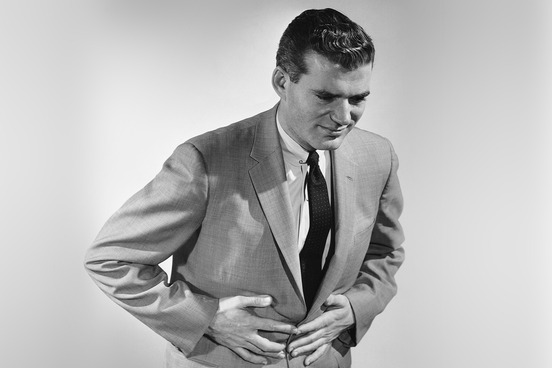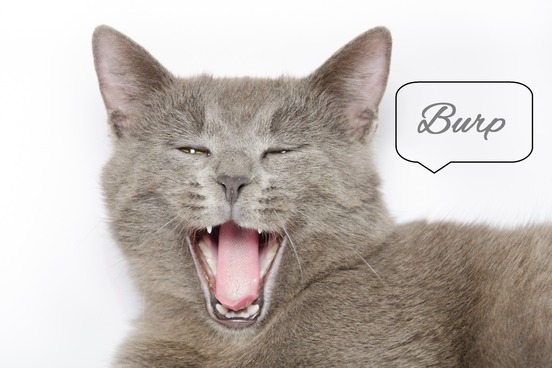
Ingurgitate
Definition:
verb: to swallow greedily or in large quantities : guzzle
Background:
Most people are familiar with regurgitate as a fancy synonym for “ralph” but far fewer know of its rarer antonym ingurgitate. It’s a word as likely to turn up in a spelling bee as in a conversation, but it does see occasional use, both literal (as in “ingurgitating red wine”) and figurative (as in “ingurgitating artwork”). Regurgitate and ingurgitate (as well as gorge, meaning “to eat greedily”) can be traced back to gurges, the Latin word for “whirlpool.”
Example:
There are many men who are said to have the power of making wealth. … They have an enormous maw, which they open and shut quick and often, devouring all that comes in their way. Nobody can surpass them in acquiring property. But what purpose does this wealth serve? Do they use it as a means for benefiting society? … Or, is this quality merely the capacity to take in—to ingurgitate, ingurgitate, INGURGITATE?
— Henry Ward Beecher, The Original Plymouth Pulpit: Sermons of Henry Ward Beecher, Volume V, September 1870 to March 1871 (Fords, Howard, & Hulbert, 1893)

Sternutation
Definition:
noun: the act or noise of sneezing
Background:
Sternutation comes from the Latin verb sternuere meaning “to sneeze.” One of the earliest known English uses occurred in a 16th-century edition of a book on midwifery, in a passage about infants suffering from frequent “sternutation and sneesynge.” The term has long been used in serious medical contexts, but also on occasion for humorous effect. In 1850, for example, author Grace Greenwood observed that U.S. senators from opposing political parties would often come together to share snuff: “And all three forget their sectional differences in a delightful concert of sternutation. No business is too grave, no speaker too eloquent, to be ‘sneezed at.’”
Example:
During the season of gathering the pepper, the persons employed are subject to various incommodities, the chief of which is violent and long-continued sternutation, or sneezing. Such is the vehemence of these attacks, that the unfortunate subjects of them are often driven backwards for great distances at immense speed, on the well-known principle of the aeolipile.
— Oliver Wendell Holmes, The Autocrat of the Breakfast Table (Phillips, Sampson and Company, 1858)

Micturate
Definition:
verb: to urinate
Background:
There are numerous synonyms for the act of voiding urine which are, to loosely paraphrase Thomas Hobbes, nasty, brutish, and short. While we love these kinds of words, it seems likely that many of them are already familiar to readers, while a longer and fancified synonym such as micturate is not. Although, we’d be remiss if we did not acknowledge what was arguably micturate’s moment in the sun, when it was featured in Joel and Ethan Coen’s 1998 cult classic comedy The Big Lebowski in a scene where one of the film’s two Mr. Lebowskis (played by David Huddleston) demands to know “Every time a rug is micturated upon in this fair city, I have to compensate the person?” So feel free to use micturate the next time nature calls, if you’re not into the whole brevity thing.
Example (misspellings in original intentional):
Efficiently and swiftly the crew fastened upon the helpless and bleating sheep their parachutes and onebyone dropped them through the open bombbay. The goat went last and she did not bleat, but dextrously butted two of her persecutors and micturated upon the third before being cast into space.
— Ward Moore, Greener Than You Think (William Sloan Associates, 1947)

Borborygmus
Definition:
noun: intestinal rumbling caused by moving gas
Background:
Unless you’re a gastroenterologist, chances are you never knew there was a name for those loud gurgles your belly sometimes makes. And if in looking at the word, you thought it was just some wacky coinage invented by someone who thought the word matched the rumbling sound it represented, you’d be right, in a way. English users picked borborygmus up from New Latin, but it traces to the Greek verb borboryzein, which means “to rumble.” It is believed that the Greek verb was coined to imitate the digestive noises made by a stomach.
Example:
Imagine Christmas without presents. No commercial hoopla, no decorations, no eating, no popping of corks, no stockings, no Santa in the chimney, no pudding, no visiting uncles with borborygmus, no Christmas tree.
— Roland Sussex, ABC.net (Australia), 18 Dec. 2012

Emesis
Definition:
noun: an act or instance of vomiting
Background:
It’s likely you’re unfamiliar with emesis as a synonym for the tossing of cookies, the blowing of chunks, the upping of chuck, as it were, though you may have come across emetic, a noun referring to something—such as a drug—that induces vomiting. Both words spewed forth (sorry) from the Greek verb emein, meaning, appropriately enough, “to vomit.”
On the latter occasion, the revulsion that resulted was so great that the gastric disturbance was in some degree masked by the violence of the other symptoms. And moreover, the emesis that then occurred gave me some relief, as has been already stated.
— James Coulter Layard, The Atlantic, June 1874

Eructation
Definition:
noun: an act or instance of belching
Background:
Eructation is simply a fancier, and some might argue a more decorous, word for “belch.” The word was borrowed from Latin in the 15th century; the verb eruct, meaning “to belch,” followed in the late 16th century. Both have their source in the Latin verb eructare, which is the frequentative form of erugere, meaning “to belch or disgorge.” (A frequentative form is one that denotes a repeated or recurrent action or state.) Eructare shares an ancestor with Greek word ereugesthai as well as Old English rocettan, both of which also mean “to belch.”
Example:
And for some time no sound was heard, but the continuous clatter of knives and forks, the occasional popping of a cork, succeeded by the gurgling of the generous wine as it flowed into the tall rummers; and every now and then a loud and rattling eructation…
— Frank Forester (William Henry Herbert), The Warwick Woodlands (Stringer & Townsend, 1851)

Megrim
Definition:
noun: a migraine
Background:
Megrim and migraine share a meaning and an etymology. Latin and Greek speakers afflicted with a pain in one side of the head called their ailment hemicrania or hēmikrania, from the Greek terms hēmi-, meaning “half,” and kranion, meaning “cranium.” French-speaking sufferers used migraine, a modification of hemicrania, for the same condition. English speakers borrowed migraine from French twice. First, they modified the French term to form migreime, which in turn gave rise to megrim in the 15th century. Later, in the 18th century, they returned to French and borrowed migraine again, this time retaining its French spelling. Nowadays, megrim and migraine can still be used interchangeably, but megrim has other meanings as well, including “whim” or “fancy.”
Example:
… one Friday, in February of 1967, while I was exploring the rare-book section of the medical library, I found and took out a rather rare book on migraine entitled “On Megrim, Sick-Headache, and Some Allied Disorders: A Contribution to the Pathology of Nerve-Storms,” written, in 1873, by one Edward Liveing, M.D. I had been working for several months in a migraine clinic, and I was fascinated by the range of symptoms and phenomena that could occur in migraine attacks.
— Oliver Sacks, The New Yorker, 20 Aug. 2012

Deglutition
Definition:
noun: the act or process of swallowing
Background:
Deglutition comes to us from the French word déglutition, which in turn comes from the Latin verb deglutire, meaning “to swallow down.” Deglutition is a fairly rare word these days, but it has a relative in English that is quite familiar: the noun glutton, meaning “one who eats to excess.”
Example:
The Sea Dragon Inn was indeed a grand establishment, with wide public rooms and pleasant sleeping cubicles. The restaurant was decorated to suggest a submarine garden, even to the dark grottos where members of a local sect, who would not publicly perform the act of deglutition, were served.
— Jack Vance, Servants of the Wankh (Ace Books, 1969)

Mastication
Definition:
noun: an act or instance of chewing
Background:
Like many of the formal-sounding words in this article, mastication and its related verb masticate come from Latin and ultimately Greek. However, while their Greek antecedent, mastichan, is related to the verb masasthai, meaning to “chew,” it means instead “to gnash the teeth.” We define gnash as “to strike or grind together.” So while mastication can refer to general chewing, it often implies a grinding action, such as that of cows chewing their food or cud.
Example:
… whatever the thing was, it had leaped upon our deer and was devouring it in great mouthfuls which it swallowed without mastication. The creature appeared to be a great lizard at least ten feet high, with a huge, powerful tail as long as its torso, mighty hind legs and short forelegs.
— Edgar Rice Burroughs, The Land That Time Forgot (A. C. McClurg & Co., 1924)

Osculate
Definition:
verb : to kiss
Background:
Osculate turns up mostly in humorous contexts as a fancy word meaning “to kiss.” The Latin noun for “kiss,” osculum, is also the diminutive of the Latin noun os, meaning “mouth.” Our adjective oral also comes from this root. Osculate (or its related noun osculation) might be used as an alternative to kiss to avoid repeating the latter word, or to bring an ironically clinical connotation to a common action for which slangier alternatives like smooch exist.
Example:
I’m not against kissing as such. After all, we’ve been doing it for a long time. Are we at root indulging in a mastication ritual when we osculate? Grooming each other? Eating those we desire? Who knows? The point is that it needs to be reined in.
— Robert Dessaix, The Byron Shire Echo (New South Wales, Australia), 26 Dec. 2016

Singultus
Definition:
noun : a hiccup or an attack of hiccuping
Background:
We hope you do not suffer from singultuses daily. If you suffer from them even weekly we feel for you and hope the knowledge of this obscure Latin word helps make the best of an annoying situation. Hiccup is, naturally, a synonymous and helpfully onomatopoeic term.
Example:
But why do we do it in the first place? Some researchers propose it is a fetal digestive reflex that guards against breathing in amniotic fluid while in the womb. Or an early way to train respiratory muscles for breathing after birth. Another theory posits that hiccups date all the way back to our amphibian ancestors. … What is agreed upon and well known, however, is the mechanism of a hiccup. Referred to in medicine as singultus, it is defined by a sudden contraction of the diaphragm and intercostal muscles located within the spacing between the ribs, followed by snapping shut of the glottis, the space between the vocal folds within the larynx. The quick spasm of inhalation colliding with the closed larynx causes the characteristic sound and bodily jerk.
— Meeri Kim, The Washington Post, 2 June 2014

Oscitancy
Definition:
noun : the act of gaping or yawning
Background:
Admit it: most days you greet the morn with oscitancy. In addition to referring to the act of yawning, oscitancy also refers to drowsiness (often demonstrated by yawns) as well as to general dullness or sluggishness. Oscitancy has a related adjective in the form of oscitant, which is used to describe one who is yawning with drowsiness (“the sweetly oscitant infant”) or, less kindly, to one who is lazy (“an oscitant ne’er-do-well”). Both words have their origin in the Latin oscitare, meaning “to yawn,” itself from the inspired combining of os (“mouth”) and citare (“to put in motion”).
Example:
The sergeant continued to relate to Butler the details of this adventure, which he did with more prolixity than the weariness of his listener was able to endure; for the major, having in the progress of the narrative got into bed, and having, in the increasing oscitancy of his faculties, exhausted every expression of assent by which one who listens to a tale is accustomed to notify his attention—he at length dropped into a profound sleep, leaving the sergeant to conclude at his leisure.
— John Pendleton Kennedy, Horse Shoe Robinson: A Tale of the Tory Ascendency (Wiley and Long, 1835)





